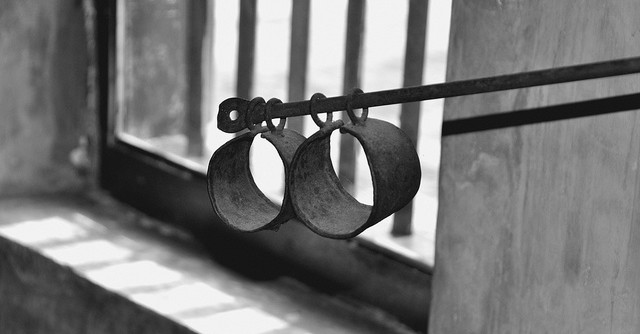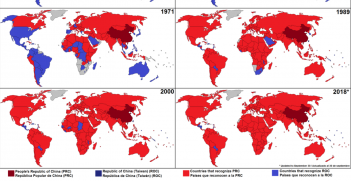The Bali Process: Responding to the Challenges of Modern Slavery

The 25th of March marks the International Day of Remembrance for the Victims of Slavery and the Transatlantic Slave Trade, a day to pay our respects to these victims, to the lives and freedoms lost. This is also an opportunity to reflect on gains made in the abolition of slavery, and the work that we collectively still need to do.
It is difficult to comprehend that throughout the course of the transatlantic slave trade, an estimated 12.5 million African men, women and children were rounded up and captured, chained from hand to foot to neck in coffles and forced into the hold of ships, bound for the so-called New World. In the course of these brutal passages, almost 2 million people died.
Today, the slave trade is still a very real problem. In 2016, all countries of the world except North Korea have laws that criminalise some form of slavery, human trafficking or forced labour. Many countries have specialist police responses and thousands of police, prosecutors and judges have been trained on responding to these crimes. While criminalisation is critical, the realities of corruption, failing justice systems and the difficulties of enforcing laws across borders combine to ensure that there remain ample low-risk opportunities for those willing to abuse and exploit others for profit.
Consider the situation of the Thai fishing industry. This is an industry worth an estimated $7.3 billion dollars per year, that exports to major clients throughout Europe, Asia and America. According to the Australian Department of Agriculture, “almost all canned tuna sold in Australia comes from Thailand.”
Since April 2015, more than 2000 men have been identified and rescued from lives of slavery on board Thai fishing vessels, some of which were operating in Indonesian waters. Men who had been locked in cages, and subjected to abuse including whipping with stingray tales, were discovered and freed from the island of Benjina, Indonesia, just 650km away from Australia. Many of these enslaved fishermen originated from neighbouring Southeast Asian countries, notably Myanmar, Thailand, Cambodia and Laos.
“I’m sure my parents think I’m dead, I’m their only son. They’re going to cry so hard when they see me,” said Tin Lun, 25, who lost contact with his family five years ago after a broker lured him to Thailand.
Thailand’s seafood industry provides only a small glimpse of the lucrative global slavery economy today. According to the Global Slavery Index, an estimated 35.8 million men, women and children are subjected to some form of modern slavery today. We are in the process of updating this estimate, based on survey data from 27 countries, and approximately 50,000 face-to-face interviews.
While governments have long looked to criminalisation as a cornerstone of their anti-slavery response, increasingly there is a need to look for more creative ways they can impact this problem. The focus is shifting to the role of business.
This week, the Bali Process – a grouping of 45 countries and 3 international organisations – recognised the important role that business must play in responding to human trafficking and slavery. Minister for Foreign Affairs Julie Bishop noted at the conference:
“While governments must be front and centre in responding, we cannot do it alone. We must find ways to work with business and private industry in finding solutions. Dealing with these issues is not just a moral imperative, it is vital for the prosperity of our region.”
As Minister Bishop foreshadows, regional prosperity will increasingly be linked to corporate and government capacity to respond to new laws which place responsibility squarely on the private sector to undertake due diligence in their supply chains.
For example, the US President recently closed loop holes in the US Tariff Act 1930, with the result that it will no longer be possible to import goods made with forced or slave labour into the United States. As the Department of Labour maintains an annually updated list of products produced by forced labour, including goods from 74 different countries, this change is likely to bite.
The UK also recently signed into law the Modern Slavery Act 2015 which requires all companies with a turnover of more than 36 million GBP to report on efforts they are taking to ensure they are not using slave labour in their supply chains. This will impact an estimated 17,000 UK-based businesses, with company reports due on 31 March 2016. These changes are about to be felt everywhere from clothing manufacturing in Cambodia, to electronics production in Malaysia.
It is critical that governments in our region bring a similarly sharp focus to this issue.For this reason, it is significant that the Bali Process Declaration, signed on 23 March 2016, recognised the need to engage with the private sector in responding to human trafficking and slavery and the importance of ensuring humane labour practices within global supply chains in accordance to human rights.
Engagement with the private sector does not mean leaving everything to self-regulation. There is no doubt that business must pull their weight on ensuring slavery is not finding its way into global supply chains. This can be achieved through risk assessment and due diligences processes, explained in Walk Free’s Tackling Slavery in Supply Chains. However, governments also have a responsibility to create the conditions that require businesses to act responsibly. In 2016, this must involve laws that require businesses to report on due diligence efforts and laws that make it a crime to import and trade of goods known to be produced with forced or slave labour.
The Co-Chairs of the Bali Process, Australia’s and Indonesia’s Ministers for Foreign Affairs Julie Bishop and Retno Marsudi, should be congratulated along with all Bali Process Member States for recognising the role of the private sector in responding to human trafficking and slavery. This is an important step forward in the collective struggle against slavery.
Fiona David and Reginald Ramos both work at the Walk Free Foundation, where Fiona is the Executive Director of Global Research and Reginald is a researcher. The Global Slavery Index is the flagship publication of the Walk Free Foundation.




